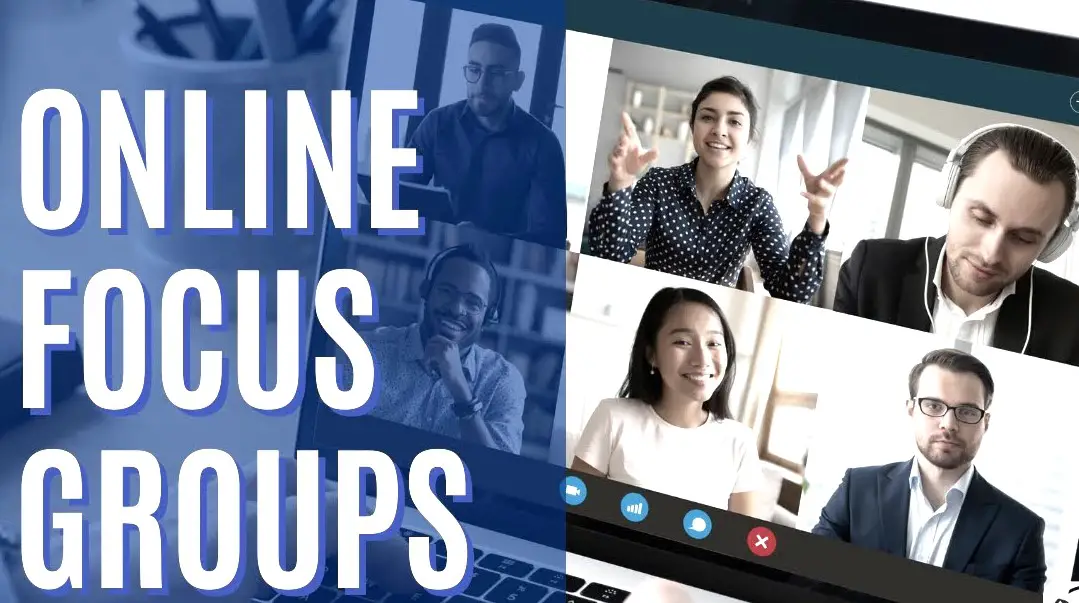Online focus group:
Focus groups have long been a valuable tool for market researchers, allowing them to delve deep into the minds of consumers and understand their preferences, opinions, and behaviors. Traditionally, these groups were conducted face-to-face in a controlled environment. However, the advent of the internet and digital communication platforms has paved the way for online focus groups, expanding the reach and scope of market research.
Global Reach
Online focus groups eliminate geographical limitations, enabling researchers to access participants from different regions, cultures, and backgrounds. This broadens the diversity of opinions and insights, making research findings more representative.
Cost-Efficiency
Traditional focus groups often incur expenses related to venue rental, travel, and participant compensation. Online focus groups drastically reduce these costs, making them a budget-friendly option for research.
Convenience
Participants can join online focus groups from the comfort of their homes or workplaces, eliminating the need for travel. This convenience attracts a wider pool of potential participants and leads to higher participation rates.
Data Security
Online platforms offer secure data storage and encryption, ensuring the confidentiality of sensitive information discussed during focus groups. This is particularly important when dealing with topics such as healthcare or finance.
Flexibility in Scheduling
Online focus groups offer greater flexibility in scheduling sessions, accommodating participants’ diverse time zones and availability. This flexibility enhances the convenience for both researchers and participants.
Types of Online Focus Groups
Online focus groups come in various formats, each tailored to specific research objectives:
Synchronous Online Focus Groups
In synchronous groups, participants and moderators meet in real-time through video conferencing or chat platforms. This format allows for immediate interaction, making it ideal for in-depth discussions.
Asynchronous Online Focus Groups
Asynchronous groups involve participants responding to questions or prompts at their convenience within a specified timeframe. This format is suitable for studies requiring more contemplation and flexibility.
Webcam-Based Groups
Webcam-based groups combine the benefits of synchronous discussions with visual cues. Participants use webcams to engage in real-time conversations, which can be particularly useful for product testing or user experience research.
Best Practices for Conducting Online Focus Groups
To ensure the success of online focus groups, researchers should adhere to the best practices:
Select a Suitable Platform
Choose a reliable and user-friendly online platform for hosting focus group sessions. Platforms like Zoom, Microsoft Teams, or dedicated market research tools offer a range of features to facilitate discussions.
Recruit a Diverse Sample
Ensure your participant pool represents the target audience, incorporating diversity in demographics, opinions, and experiences. This enhances the richness of insights gathered.
Provide Clear Instructions
Offer detailed instructions to participants regarding the format, duration, and objectives of the focus group. Make sure they are comfortable with the technology and have access to any necessary materials.
Skilled Moderation
Experienced moderators play a crucial role in guiding discussions, managing participant dynamics, and ensuring the research objectives are met. They should be skilled in both the subject matter and online facilitation.
Record and Analyze
Record focus group sessions for reference and analysis. Transcribe discussions and use qualitative research methods to identify patterns and insights from the data.
FAQs
Are online focus groups as effective as in-person ones?
Online focus groups can be just as effective as in-person ones when conducted correctly. They offer several advantages, including broader reach and cost savings, making them a valuable research tool.
How do I ensure data security in online focus groups?
Choose a reputable platform with robust security measures, such as encryption and access controls. Additionally, inform participants about data confidentiality and obtain their consent.
What are the challenges of online focus groups?
Challenges may include technical issues, participant distractions, and the potential loss of non-verbal cues. However, these challenges can be mitigated with proper planning and moderation.
How can I engage participants in asynchronous focus groups?
Encourage active participation by setting clear deadlines, using engaging prompts, and providing feedback or incentives to keep participants motivated.
Can I use online focus groups for sensitive topics?
Yes, online focus groups can be used for sensitive topics, but extra care should be taken to ensure data security and participant comfort. Participants should have the option to remain anonymous if desired.
Conclusion
Online focus groups and research have become indispensable tools for market researchers seeking to gather insights in a fast-paced digital world. Their advantages in terms of global reach, cost-efficiency, and convenience make them a valuable addition to the researcher’s toolbox. By following best practices and addressing common concerns, researchers can harness the power of online focus groups to uncover valuable consumer insights and drive informed decision-making in various industries.
